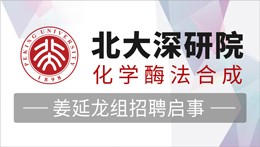当前位置:
X-MOL 学术
›
Urban Clim.
›
论文详情
Our official English website, www.x-mol.net, welcomes your
feedback! (Note: you will need to create a separate account there.)
A socio-economic vulnerability assessment framework against natural disasters: A case study in Seoul, South Korea
Urban Climate ( IF 6.0 ) Pub Date : 2024-09-28 , DOI: 10.1016/j.uclim.2024.102139
Chi Vuong Tai , Eun-Sung Chung , Dongkyun Kim
Urban Climate ( IF 6.0 ) Pub Date : 2024-09-28 , DOI: 10.1016/j.uclim.2024.102139
Chi Vuong Tai , Eun-Sung Chung , Dongkyun Kim
Recent publications on vulnerability assessment of weather-related disasters exhibit three main drawbacks: (1) minimal explanation of high contributing features; (2) limited validation; and (3) partial presentation of validation results. Our research addresses these gaps by thoroughly examining the most influential factors on the Socio-Economic Vulnerability Index (SEVI). We internally validated SEVI using Monte Carlo simulation, providing an in-depth evaluation of uncertainties in both values and rankings, along with sensitivity analysis of features. Seoul was selected in this study due to its status as South Korea's largest metropolitan city and its vulnerability to natural disasters. The findings reveal: (1) demographic structure features mainly drive the distribution of highly vulnerable sub-districts around the Han River; (2) among 38 highly vulnerable sub-districts, 15 exhibit low bias in SEVI values, while 10 remain unchanged in rankings, supporting reliable flood risk mitigation strategies; (3) the single-mom family feature causes the highest variability in SEVI results, exceeding 5 %. These findings emphasize the need for disaster risk management strategies to be deeply informed by socio-economic and demographic data. By integrating these insights into planning, policymakers can develop more effective strategies, addressing both immediate disaster impacts and the underlying vulnerabilities that make certain populations more susceptible to harm.
中文翻译:

针对自然灾害的社会经济脆弱性评估框架:以韩国首尔为例
最近关于天气相关灾害脆弱性评估的出版物显示出三个主要缺点:(1) 对高贡献特征的解释最少;(2) 有限验证;(3) 部分呈现验证结果。我们的研究通过彻底检查对社会经济脆弱性指数 (SEVI) 影响最大的因素来解决这些差距。我们使用蒙特卡洛模拟对 SEVI 进行了内部验证,对值和排名的不确定性进行了深入评估,并对特征进行了敏感性分析。首尔之所以被选中,是因为其作为韩国最大的大都市的地位以及对自然灾害的脆弱性。研究结果显示:(1) 人口结构特征主要驱动汉江周围高度脆弱的街道分布;(2) 在 38 个高度脆弱的分区中,15 个在 SEVI 值方面表现出低偏差,而 10 个在排名中保持不变,支持可靠的洪水风险缓解策略;(3) 单妈妈家庭特征导致 SEVI 结果的可变性最高,超过 5%。这些发现强调了灾害风险管理策略需要以社会经济和人口数据为依据。通过将这些见解整合到规划中,政策制定者可以制定更有效的策略,解决直接的灾害影响和使某些人群更容易受到伤害的潜在脆弱性。
更新日期:2024-09-28
中文翻译:

针对自然灾害的社会经济脆弱性评估框架:以韩国首尔为例
最近关于天气相关灾害脆弱性评估的出版物显示出三个主要缺点:(1) 对高贡献特征的解释最少;(2) 有限验证;(3) 部分呈现验证结果。我们的研究通过彻底检查对社会经济脆弱性指数 (SEVI) 影响最大的因素来解决这些差距。我们使用蒙特卡洛模拟对 SEVI 进行了内部验证,对值和排名的不确定性进行了深入评估,并对特征进行了敏感性分析。首尔之所以被选中,是因为其作为韩国最大的大都市的地位以及对自然灾害的脆弱性。研究结果显示:(1) 人口结构特征主要驱动汉江周围高度脆弱的街道分布;(2) 在 38 个高度脆弱的分区中,15 个在 SEVI 值方面表现出低偏差,而 10 个在排名中保持不变,支持可靠的洪水风险缓解策略;(3) 单妈妈家庭特征导致 SEVI 结果的可变性最高,超过 5%。这些发现强调了灾害风险管理策略需要以社会经济和人口数据为依据。通过将这些见解整合到规划中,政策制定者可以制定更有效的策略,解决直接的灾害影响和使某些人群更容易受到伤害的潜在脆弱性。

































 京公网安备 11010802027423号
京公网安备 11010802027423号